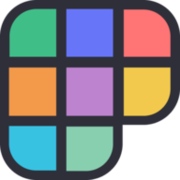A memorable personal brand isn’t just about scoring a new role. It's also about controlling your online narrative or giving yourself more opportunities to generate side income. Having a strong online presence is one of the best places to start.
For this guide, we analyzed dozens of personal websites and online presences across the Polywork community and the web, and supplemented our findings with interviews across devs with established personal brand presences, to compile the best tips for software engineers getting started (or are not sure where to begin).
A personal branding guide for software engineers
In this guide to personal branding for software engineers, we'll cover:
- The value behind having a personal brand in software engineering
- How to establish what makes you stand out
- How to take the time to understand the type of content you should create
- Why it matters to be useful, consistently
- Why you should just build the thing!
- How to optimize your website or profile
- How other developers are approaching personal branding

What’s the value in having a personal brand as a software engineer?
So why is a personal brand so important for software developers? Based on our research and interviews with software engineers, having a strong personal brand can:
- Help you attract new opportunities, like side projects or open-source collaborations
- Increase your online visibility and strengthen your thought leadership in the space
- Puts you on a path to monetization, such as helping you sell a product like a course or newsletter subscription
- Land you more trust in the industry
- Support your growth process if you’re trying to showcase your skills or find a new role
- Ensure you’ll stand out from other developers
- Offer more exposure for your projects or recent achievements
- Minimize imposter syndrome and give you access to a support network

And it’s not just the online space.
Speaking at events or simply meeting up for a bike ride with other devs in your area can also help you strengthen your network and ultimately your online presence. There are several other considerations for software engineers, a few of which we dive into below.
1. Establish what makes you stand out
It’s easy to start talking about a programming language or the latest library you’ve tried out. But what’s really going to make people want to keep up with you and your posts is how you approach that topic.
From explaining concepts to beginner audiences to sharing how you’re working on plugins for Figma, trying out different types of form validation with React, or even coming up with better alternatives like new tools or development applications.
Catalin Pit, for instance, has a newsletter and blog where he takes beginner devs through step-by-step tutorials for React and other programming languages he uses in his daily work.
That’s exactly what you want to consider when building out your “offer” in the software development space. It comes down to answering a simple question: “How can I stand out?”
The best way to see what makes you, you, is to have a look at how other software engineers position themselves. You’ll want to find that sweet spot between what you want to talk about and an area [e.g. framework, library, concept, challenge] other devs don’t tackle as often.
Sashrika Kaur is a software developer and Hackathon Evangelist taking part and sharing her experience with attending these events:
2. Take the time to understand the type of content you should create
Next, you'll want to narrow down the topics that will help bolster your personal brand by considering:
- What you like talking about
- What your ideal audience will enjoy
You’ll never be able to maintain a strong online presence if you’ll start creating content around a topic that’s popular but you neither enjoy nor use with your projects.
Ellen Shapiro, iOS/Android Developer, recommends a three-step process for staying authentic to your true self when creating content:
- Decide what’s the most natural communication form for you [e.g. blogs, talks, videos]
- Test out different formats to see which ones are more fun for you
- Think of self-promotion through content as a way of educating others
Next, you’ll want to consider your goals. Do you want to build an audience or a community?
Building an audience means you're being more unilateral, prescriptive, and following trends to create viral content. This approach is best suited for developers looking to become better known in the industry or bring more exposure to projects they’re working on.
Building a community is a two-way channel for communication. You’ll be creating content that’s likely less sexy, but your community will appreciate it more over time because you'll be solving problems together with them. Your focus here is on helping the community so you’re looking at contributing to open-source projects, hosting local meetups, or even starting a newsletter.

“Focus on clear communication, simplifying concepts rather than complicating them to appear more intelligent,” says Luca Mezzalira, Principal Serverless Specialist at AWS. “Support your ideas with data and logical reasoning to enhance your narrative. Contribute to the community by sharing your knowledge and efforts, and you'll find that what you give will be returned to you twofold.”
Luca also recommends embracing transparency and being open with others to maintain authentic relationships, which he sees as two key pieces to growing your personal brand.
3. Be useful, consistently
One of the most often mentioned tips by the experts we talked to is the value behind providing useful content and resources to your audience.
On the same note, Matt Pocock, TypeScript Educator, highlights the value in helping people to eventually be regarded as a subject matter expert.
“To quote (developer) Wes Bos, the best way to grow a 'personal brand' is to 'be useful on the internet'. Specifically, in the places and forums where people hang out.
Got a framework you're into? Head to that framework's Discord server and start answering questions. Reply to GitHub issues. When you notice that the framework's docs are lacking something, make a PR to add it. Find a cool trick that doesn't fit the docs? Make a blog post about it.”

Matt also shared with us the earliest steps he took to build his personal brand:
“I got my start as a helpful little developer in the XState community. I wrote blog posts, answered a ton of questions, and developed a reputation for knowing the library well. Eventually, people weren't just tagging the maintainer in questions on Twitter, they were tagging me too. I joined the core team, started to post more about XState, and got my first 4,000 followers or so.”
4. Making the time to build the thing!
Alex Keates, Director of Engineering at Croissant, advises starting as early as possible to give yourself an extra nudge and start seeing the results:
“So many people never start. Take that leap and get started. Write that first line, record those initial ten seconds, or compose one tweet a day. Just take that first step and start building. It's within the process of building that you discover your talents and experience growth. Just begin, and the rest will naturally follow. Just build the thing.”
5. Optimize your website or profile
Every software engineer should consider a personal website at some point — whether that’s because you want to use it as a replacement for typical resumes or you’re thinking about starting a blog.
The good news is devs don’t need complex websites. At minimum typical structure could look something like this:
- A bit about yourself
- Highlights of your past projects and roles
- A blog or extra social links so people can keep up with your work
- Must-have contact information [most often an email address or contact form]
While most developers can easily put together an online profile, they’ll find it much harder (i.e., more valuable) to tie your name to a concept or library. Therefore, you’ll want to start thinking about optimization early and often as a means to help you better position yourself in popular search engines.
Personal branding examples from software developers
Let’s see just how other software developers are positioning and growing their personal brands. Here are six personal branding examples and everything that makes them stand out:
1. Luca Mezzalira
Why this profile works: Luca is the perfect example of a complete personal brand. From talks and guest lecturing to having his newsletter and book, he stands out in the online space thanks to the variety of opportunities he’s open to.
Takeaway from this profile: Cover multiple channels and engagement opportunities to showcase your expertise in diverse topics and grow your community.
2. Sacha Greif
Why this profile works: This one-page profile website manages to capture the entire collection of Sacha’s work. We understand a bit about him as a person, a coder, and the extra things he’s interested in.
Takeaway from this profile: Got more going on than just code? Make sure to show off all your work and projects. You can opt for a multihyphenate website like Sacha did to put your development work in perspective with other speaking engagements or side projects.
3. Nick Taylor
Why this profile works: Nick is a master at collecting and showcasing his projects and results. He’s got dedicated highlight collections for his open-source contributions, live streams, talks, and writing work.
Takeaway from this profile: Be proud of each achievement and turn to your online community to amplify your work.
4. Laurie Barth
Why this profile works: Laurie, a software dev and LEGO fan, understands that a memorable brand is a fair mix of the serious work stuff and the small things that make us resonate with each other. In her case, that small cue is a hobby, but it can be loads of different aspects like being transparent about your coding process or sharing insights from your past projects to highlight real-life scenarios that happen around organizations and teams as well.
Takeaway from this profile: Add a personal touch to your individual brand to stand out.
5. Anthony Teo
Why this profile works: Anthony’s profiles are primarily focused on his current role and work. Hence, he mostly talks about the projects he’s involved in and has several portfolio/website links throughout all the channels he uses to promote his personal brand. His Polywork intro [pictured above] also starts by outlining his career path.
Takeaway from this profile: Direct people towards links or resources that are directly tied to your biggest goals. If it’s landing a new role, put your portfolio and current work at the forefront. If you want to grow your followers for your blog or newsletter, those are the links [and subsequently types of posts] you should prioritize.
6. Alex Riviere
Why this profile works: Web Developer Alex Riviere sure knows a thing about the value of creating a timeline to track your growth in time. His Polywork profile walks us through every role, project, and engagement he’s ever had.
Takeaway from this profile: Position yourself for the projects and initiatives you want to get. Goal setting is another core priority devs should keep in mind when dedicating their time to growing a personal brand. Especially when you’ve got a full-time role, you simply won’t have time to do it all. So you need to decide exactly what your current priority is and what you can postpone for later.
Build your own personal brand in software engineering: Here's how to get started
Go over each step in this checklist to ensure you’re covering multiple aspects of creating and optimizing your personal brand:
- Decide what will define your personal brand and how you’re going to stand out
- Set up your first online profile or website
- Find out what content types and topics you’d love to share [Fun fact: Being helpful for the dev community is the most commonly mentioned personal branding tip among experts.]
- Start doing something: write your first post, speak on a podcast, talk about your experience, etc.
- Revisit your website and portfolio to make sure it aligns with your goals



